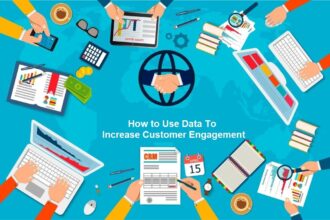Copyright © 2009 James Taylor. Visit the original article at KPI framework for a competitive edge.
I am hosting a panel on Predictive Analytics at the Business Analytics Summit and I got a chance to attend a session beforehand where Dave Stodder presented on performance management and Key Performance Indicators.
Dave began by emphasizing that performance management is both a business and IT issue and that it needs to link people, process and technology. Performance management is focused on how we are doing, why are these things happening and what should we be doing. KPIs are designed to track and measure within a performance management framework. At the end of the day it comes down to Drucker’s comment that you cannot manage what you don’t measure. As a result Performance management is driven by everything from Balanced Scorecards (Kaplan and Norton), Six Sigma, TQM and more.
Balanced KPIs keep people focused on what they should be doing, what they can do with their information, as well as providing balance between conflicting goals. They should also be based on multiple measures not just financial ones. Performance Management joins Process Management and …
Copyright © 2009 James Taylor. Visit the original article at KPI framework for a competitive edge.
I am hosting a panel on Predictive Analytics at the Business Analytics Summit and I got a chance to attend a session beforehand where Dave Stodder presented on performance management and Key Performance Indicators.
Dave began by emphasizing that performance management is both a business and IT issue and that it needs to link people, process and technology. Performance management is focused on how we are doing, why are these things happening and what should we be doing. KPIs are designed to track and measure within a performance management framework. At the end of the day it comes down to Drucker’s comment that you cannot manage what you don’t measure. As a result Performance management is driven by everything from Balanced Scorecards (Kaplan and Norton), Six Sigma, TQM and more.
Balanced KPIs keep people focused on what they should be doing, what they can do with their information, as well as providing balance between conflicting goals. They should also be based on multiple measures not just financial ones. Performance Management joins Process Management and Decision Management as a “higher power,” one of the levers of improved enterprise performance. Performance management also helps bring BI from departmental usage, focused on reporting, to enterprise-driven metrics and best practices.
Three business imperatives drive demand for BI, Performance Management and KPIs:
- Establish value – find, increase and retain value
- Manage risk – identify, predict and protect
- Rebuild worker productivity – measure, manage and enhance by focusing workers on core issues
Performance Management has some overlap with operational BI. The move to an operational focus, from traditional BI to more operational BI, is often focused on improving efficiency and customer service. Getting rapid access to accurate information improves efficiency and improves customer service. This pushes more BI functionality out to front-line employees, business processes. The use of performance management and a focus on metrics can help focus this and simplify it by allowing IT to deliver simple metrics rather than complex reports.
At the same time the focus is moving to centrally managed approaches, where departmental systems were more common in the past. The move to operational BI and metric-driven performance management is driving centralization. This delivers consistency, cheaper/faster integration and makes it easier to implement data mining and predictive analytics.
Improving customer service, focusing on customer metrics, is the most important objective for 60% of folks surveyed by Ventana Research. This focus on customers means more sources (because customer data is scattered) and on more real-time data (because customers keep doing things). Interestingly customer contact centers are emblematic of the challenges with KPIs. For instance, though the agents are measured and managed very tightly, their supervisors are not. Supervisors don’t feel they can impact customer service directly so they don’t see the metrics as relevant to them. KPIs must be designed to match what the person can impact (and, I would add, give them the ability to change the systems that affect the metric when this is necessary).
Accountability is critical for KPIs. Is it reasonable to hold someone accountable to a particular metric? Are the people who come up with the metrics held accountable for their implementation? Who needs to see what – are you keeping people focused on metrics that fall into their area of responsibility?
Proliferation is a second issue. Just like reports, too many KPIs can be distracting rather than useful. Vague implementation without real accountability and control will result in metrics that are just noise.
A central focus on well defined metrics can also really help after mergers and acquisitions – it can be easier to develop integrated metrics than integrated reporting. A focus on metrics also tends to deliver a top-down view not the bottom-up view typical of reporting, and improve alignment.
Human psychology is critical in performance management. Will people focus only on achieving the goal or will they be more thoughtful about what is really needed? Will people understand why those metrics matter? Do people want their performance to be transparent and at what level?
Keep the number of KPIs reasonable, make sure people understand what is driving the KPIs and think continuous change.
Cross-posted to ebizQ and BeyeNetwork as both were media sponsors of the Business Analytics Summit.






